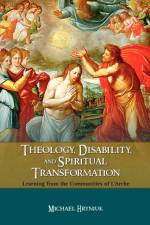von Michael Hryniuk
128,00 €
Contemporary interest in spiritual transformation has been growing in fields as diverse as theology, psychology, education, the health sciences and management theory. There is an emerging recognition of the need for a fuller understanding of the nature and dynamics of spiritual growth and its implications for human development and social change. Transformation has also become the subject of scholarly investigation in the Christian tradition, as churches seek to recover their vitality and relevance in a radically secularized and pluralistic culture. The emerging disciplines of practical theology and Christian spirituality have made major contributions to the current discussion of spiritual transformation. James Fowler s groundbreaking studies in faith development, Benedict Groeschel s exploration of spiritual passages, and Evelyn and James Whitehead s investigations of Christian life patterns are representative of the many efforts being made to clarify the nature of transformation in Christian spiritual experience. Even a cursory survey of the different scholarly approaches in theology and Christian spirituality reveals that the notion of transformation remains ambiguous as a theoretical construct. In some contexts it implies a developmental transition or change in beliefs and values. In other contexts focusing on religious conversion it indicates a structural shift in personality and group affiliation. Therapeutic perspectives focus on the dynamics of healing and addiction research views the process through the lens of recovery. Much literature in the study of Christian spirituality continues to focus on transformation largely through the frameworks of classical sources such as the three-fold way of purgation, illumination and union in monastic spirituality, the spiritual exercises of St. Ignatius, or the mystical ascent described in studies of figures such Theresa of Avila and John of the Cross. Very often, the notion of spiritual transformation in these studies is not defined or examined critically. Moreover, most theoretical accounts of transformation, whether theological, psychological or spiritual, tend to remain highly abstract and detached from the relational and communal contexts in which persons actually live. There is also a lack of transdisciplinary perspectives on transformation that integrate theology, psychology and spirituality. In this study, Michael Hryniuk develops a full phenomenological, psychological and theological account of spiritual transformation in the context of L Arche, a federation of Christian communities that welcome persons with learning disabilities. The book begins with a critical examination of current perspectives on spiritual transformation in theology and Christian spirituality and constructs a new, foundational formulation of transformation as a shift in consciousness, identity and behavior. Through extensive analysis of the narratives of the caregiver-assistants who share life with those who are disabled, this case-study reveals an alternative vision of the three-fold way that unfolds through a series of profound awakenings in relationships of mutual care and presence: an awakening to the capacity to love, to bear inner anguish and darkness, and to experience radical human and divine acceptance. The book examines the psychological dimensions of spiritual transformation through the lens of contemporary affect theory and explores how care-givers experience a profound healing of shame in their felt sense of identity and self-worth. It moves finally to a theological investigation of the meaning of transformation in the context of L Arche as a process of synergy with the Holy Spirit in relationships of mutuality with persons who are disabled. By tracing the transformative process in L Arche as one of growth in communion, the book outlines a fully relational ontology of the person, an existential Christology of self-embrace, and a Trinitarian spirituality of community life. This book is an important contribution to the fields of Christian spirituality, practical theology, disability studies, pastoral psychology and religious education.

